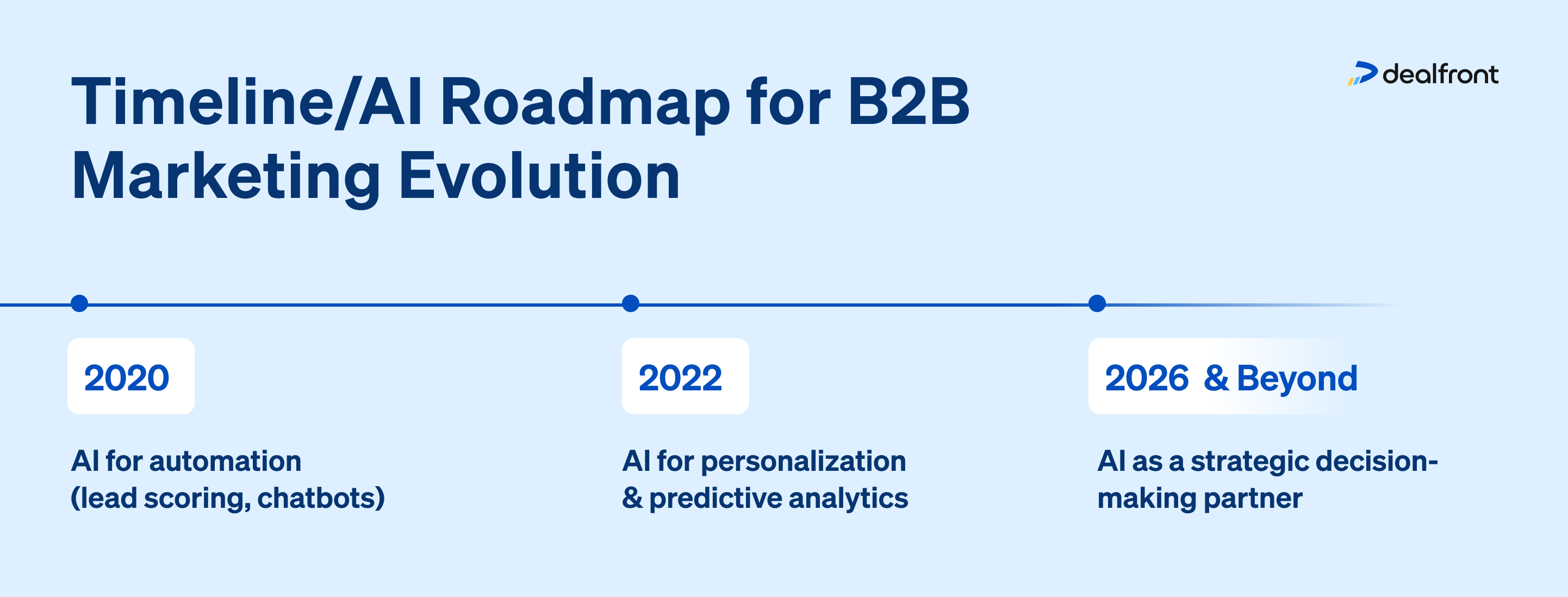Open Performance and Development With AI Automation for B2B Business
AI automation is transforming the landscape for B2B firms. It reduces and simplifies procedures reliance on human intervention. This change allows businesses to make quicker, data-driven choices. As companies explore which processes to automate, they should also take into consideration the right devices to execute. Difficulties stay in embracing AI innovation. The implications of these changes could form the future of many companies in means yet to be totally comprehended
Comprehending AI Automation in the B2B Context
As companies progressively seek efficiency, recognizing AI automation in the B2B context comes to be necessary. AI automation includes using advanced technologies to streamline procedures, reduce human intervention, and enhance decision-making processes. In the B2B landscape, this can show up in different forms, such as automating consumer solution interactions, taking care of supply chain logistics, or enhancing advertising projects. Companies can utilize AI to examine enormous datasets quickly, allowing them to identify patterns and understandings that inform strategic options. Furthermore, AI systems can incorporate seamlessly with existing innovations, providing a cohesive system for handling organization functions. This understanding lays the foundation for organizations to discover how AI can transform their procedures, improve performance, and eventually foster lasting development in an open market.
Key Advantages of Implementing AI Automation

Determining Processes Suitable for Automation

Picking the Right AI Devices for Your Service
When B2B business think about automating their procedures, picking the right AI devices ends up being essential for achieving desired end results. Companies must begin by examining their unique requirements and goals, making certain placement with service goals (Minarik AI). Assessing the flexibility, combination, and scalability capacities of possible devices is vital, as these aspects determine long-term efficiency. Organizations needs to also consider user-friendliness and the level of assistance given by suppliers, as these elements can affect effective execution. Additionally, examining consumer reviews and study can supply understandings right into how certain AI services carry out in real-world scenarios. By diligently picking AI tools that fit their operational needs, B2B firms can improve efficiency and drive development while reducing potential interruptions
Conquering Difficulties in AI Fostering
B2B firms frequently experience significant challenges in adopting AI innovations, particularly problems associated to data quality and resistance to transform monitoring. Poor data quality can impede the effectiveness of AI systems, while worker reluctance to accept new procedures can stall implementation initiatives - Growth Systems For B2B. Resolving these challenges is important for successful AI integration and optimizing its possible benefits
Information Quality Issues
Ensuring high information high quality is important for the successful fostering of AI technologies in business-to-business settings. Inaccurate, insufficient, or outdated information can significantly hinder AI campaigns, resulting in wrong insights and poor decision-making. Business frequently face challenges such as data silos, variances across various sources, and a lack of standard information styles. To conquer these concerns, companies should buy information cleaning, assimilation, and administration procedures. Carrying out robust information administration practices ensures that the info fed right into AI systems is trustworthy and pertinent. Cultivating a society of information quality understanding amongst workers can boost information accuracy over time. By attending to information quality worries, B2B firms can release the full possibility of AI automation, driving performance and development.
Change Administration Resistance

Gauging the Effect of AI Automation
Measuring the effect of AI automation in B2B firms requires a clear understanding of essential performance signs (KPIs) that straighten with business goals. Reliable information analysis methods are essential for interpreting the outcomes, while durable ROI assessment approaches help establish the economic benefits of automation efforts. Together, these elements give a comprehensive structure for reviewing AI's payments to business success.
Trick Efficiency Indicators
Trick efficiency indications (KPIs) work as necessary devices for B2B firms to analyze the effectiveness of AI automation initiatives. By establishing clear metrics, organizations can gauge enhancements in operational efficiency, expense reduction, and profits growth directly attributable to automation. Common KPIs consist of cycle time decrease, mistake prices, client contentment scores, and worker efficiency levels. These indications give insights into how AI systems are maximizing procedures and improving overall efficiency. Furthermore, tracking KPIs enables companies to recognize areas for additional improvement and to align AI automation initiatives with strategic business objectives. Ultimately, a distinct structure of KPIs assurances that B2B companies can quantitatively review the effect of AI get redirected here automation on their operations and drive constant development.
Data Evaluation Methods
Effective data analysis techniques play a crucial function in evaluating the impact of AI automation within B2B companies. By using analytical methods, companies can determine fads and patterns in operational information, permitting them to examine the effectiveness gains accomplished via automation. Techniques such as regression evaluation and time series projecting provide insights right into just how AI-driven processes influence efficiency and decision-making. In addition, data visualization devices can properly communicate findings to stakeholders, assisting in notified tactical decisions. Artificial intelligence formulas can additionally boost evaluation by anticipating future results based on historic information, supplying workable insights. Ultimately, these techniques make it possible for B2B firms to determine success and maximize their AI automation campaigns, making certain positioning with company objectives and boosting general performance.
ROI Assessment Methods
Assessing the roi (ROI) of AI automation is necessary for B2B business seeking to comprehend the monetary ramifications of their technological campaigns. Business can employ different ROI evaluation strategies to determine the efficiency of AI implementations - Growth Systems For B2B. One efficient approach entails determining cost financial savings by comparing functional expenses prior to and after automation (AI Automation For B2B). In addition, determining efficiency improvements through vital efficiency indicators (KPIs) aids quantify the advantages of AI. Client complete satisfaction metrics can additionally supply insights right into the effect of automation on solution high quality. To guarantee a thorough analysis, business need to think about both direct monetary returns and intangible benefits, such as boosted decision-making abilities and competitive advantage. This complex assessment enables B2B business to make informed decisions pertaining to future investments in AI modern technology
Future Trends in AI Automation for B2B Firms
What developments exist ahead for AI automation in B2B firms? Emerging patterns show a significant shift in the direction of enhanced information analytics abilities, making it possible for businesses to make even more enlightened decisions. Predictive analytics will end up being increasingly crucial, allowing business to prepare for market changes and client demands. Additionally, the combination of AI with Web of Points (IoT) technology is expected to improve procedures by giving real-time insights and automation of processes. Business will certainly additionally focus on improving client experiences with customized advertising and marketing driven by AI algorithms. Furthermore, improvements in all-natural language handling will assist in much better communication in between customers and companies. As these trends develop, B2B companies need to adjust to utilize AI automation successfully, making certain continual growth and competitive advantage.
Frequently Asked Concerns
What Industries Advantage the Most From AI Automation in B2B?
Manufacturing, money, medical care, and logistics sectors profit the most from AI automation in B2B. These fields utilize AI to enhance processes, enhance decision-making, and boost total operational efficiency, driving substantial growth and innovation.
Just How Does AI Automation Effect Staff Member Duties and Responsibilities?
AI automation improves staff member roles and obligations by enhancing repetitive jobs, allowing workers to focus on critical efforts. This change promotes skill development, enhances performance, and motivates collaboration, eventually driving organizational growth and innovation.
What Prevail False Impressions Regarding AI Automation in B2B?
Usual mistaken beliefs regarding AI automation in B2B consist of anxieties of work loss, beliefs that AI can fully replace human judgment, and underestimating the relevance of partnership in between AI systems and employees for excellent results.
Just How Can Companies Make Sure Information Personal Privacy With AI Automation?
Companies can ensure data personal privacy with AI automation by carrying out robust security protocols, adhering to regulative conformity, carrying out regular audits, and training workers on data managing techniques to mitigate risks and safeguard sensitive info.
What Are the Prices Related To Executing AI Automation?
The costs connected with carrying out AI automation consist of software program procurement, framework upgrades, training employees, ongoing maintenance, and potential downtime throughout integration. In addition, firms might sustain expenditures associated with data safety and security and compliance measures.
Measuring the influence of AI automation in B2B business calls for a clear understanding of key efficiency signs (KPIs) that line up with company objectives. Key efficiency indications (KPIs) offer as essential devices for B2B firms to examine the efficiency of AI automation efforts. Effective data analysis techniques play an essential role in reviewing the effect of AI automation within B2B business. Evaluating the return on financial investment (ROI) of AI automation is crucial for B2B business seeking to understand the economic ramifications of their technological campaigns. What advancements lie in advance for AI automation in B2B business?